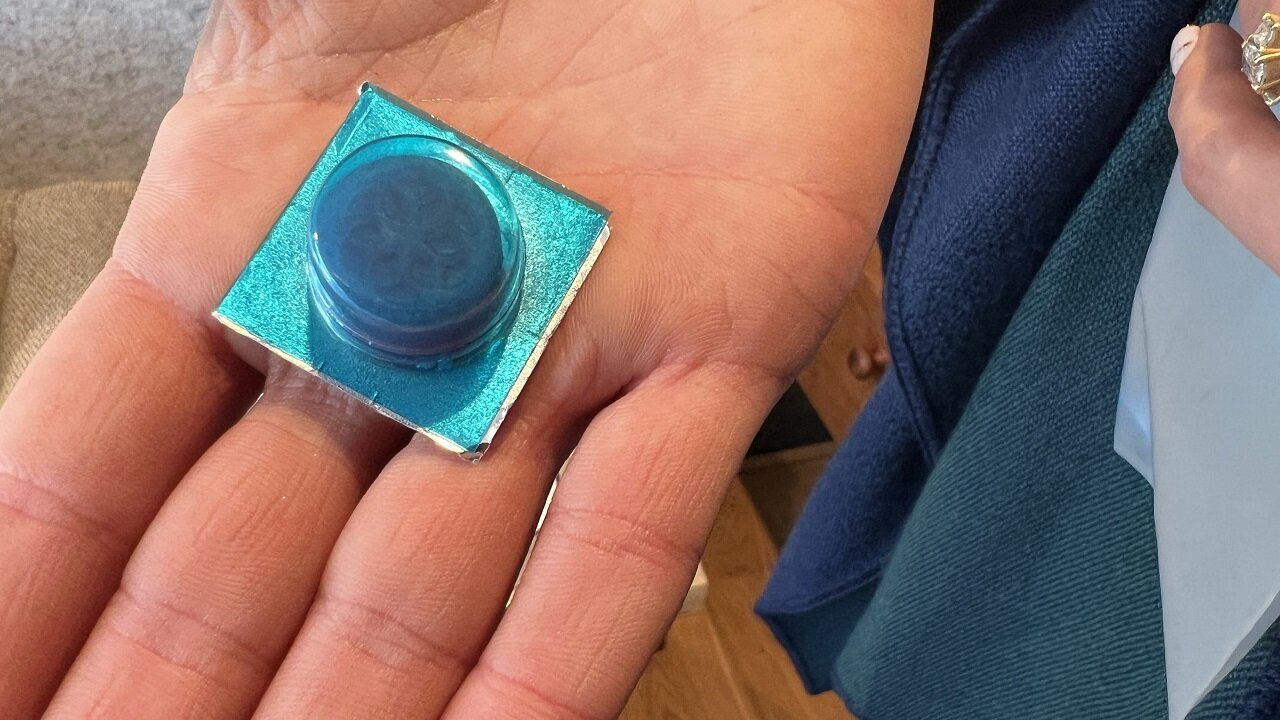For physical and mental health, Colorado woman finds success with ketamine

DENVER — After a car crash nearly six years ago left her with bouts of chronic neck pain, anxiety and depression, Allison Foley felt as though she had exhausted all her treatment options. Nothing worked.
Various medications, talk therapy and numbing agents seemed to put a bandage over the underlying issues, but the pain always bubbled to the surface when initial dopamine hits wore off.
After years of frustration, Foley spoke with a friend in California who used ketamine to cope with similar issues. Foley heard Colorado was introducing a similar program offering ketamine therapy and decided to give it a shot, feeling she had nothing to lose.
After three months of taking a small ketamine dose once a week at home, Foley said her life transformed.
Related Stories
“I was actually able to face the pain head-on and create a new narrative around it that’s helped me not only manage my chronic pain but accelerate my life to the next level,” Foley said. “I can’t say that ketamine has fixed my chronic pain, but it’s given me a different lens to view my life.”
The United States Food and Drug Administration classifies ketamine as a Class III substance, meaning it is legal for medical purposes in all 50 states.
Several practitioners in the Denver area prescribe ketamine. Foley obtains her treatment through Wondermed LLC, a platform that provides ketamine doses and therapy services to remote patients. Foley takes her dose once a week at her Denver home and meets with a clinician monthly to discuss progress. Because ketamine alters Foley’s mind, she takes it under the supervision of a close friend or family member, though she said she has never had any issues while under its influence.
“The experience is very calming,” Foley said. “It’s essentially like a warm hug.”
Foley said the ketamine helps her “step outside herself” and look at her anxious thoughts from an objective place, rather than being consumed by them.
“There’s a voice that can get louder or quieter depending on the day or depending on what I’m going through that can really disrupt my life,” Foley said. “This treatment has given me the opportunity to allow my true inner healer to step up and have a dialogue with that negative voice.”

The experience lasts about an hour, and Foley meditates, journals and processes her difficult emotions and memories without being consumed by them.
“It allows you to go to a deeper level of your subconscious and eliminate the anxiety that comes with working on a deeper level of yourself,” Foley said.
Lauren Swanson, a physician’s assistant and lead clinician with Wondermed, said ketamine differs from antidepressants and other psychedelic medications because it is fast-acting and grows new neural connections that change a person’s brain, allowing them to shift their perspective and cope with traumas or pain.
“You have these major shifts and that’s what sticks with you after the ketamine is gone,” Swanson said. “It’s molding that neuroplasticity to your benefit in a way that works for you.”
In addition to aiding mental health treatment, ketamine is also used as an anesthetic in hospital settings and for animals. In larger doses, ketamine can tranquilize a person or immediately ease suicidal thoughts.
Ketamine has had recent national attention from a case in Colorado. Administered improperly, it can have fatal consequences. Earlier this year, an amended autopsy found that Elijah McClain died because paramedics injected him with too large a dose of ketamine. McClain was put in a neck hold and injected with ketamine after being stopped by police in Aurora for “being suspicious.” McClain's death resulted in legislation that restricted how the drug can be used by first responders.
The Mayo Clinic reported that ketamine can have negative interactions with dozens of other drugs, which is why the drug is recommended only to be taken with a prescription. Additionally, the clinic's website states ketamine can produce unwanted side effects, both during and after usage, which can include dizziness, fainting, seizures and unusual tiredness or weakness.

Still Swanson said those like Foley who are working with mental health diagnosis of anxiety and depression are finding the small, prescribed doses of ketamine work "remarkably well" for those patients.
Swanson said ketamine is one addition to a recent renaissance of psychedelic drugs used in mental health treatments. Colorado recently legalized psilocybin mushrooms for therapeutic purposes. Swanson said psychedelics have become a popular choice when traditional selective serotonin reuptake inhibitors (SSRIs) have not worked or have come with a cost of too many side effects.
Alison Berg is a multimedia journalist at Rocky Mountain PBS. You can reach her at alisonberg@rmpbs.org.
Jeremy Moore is a senior multimedia journalist at Rocky Mountain PBS. You can reach him at jeremymoore@rmpbs.org.